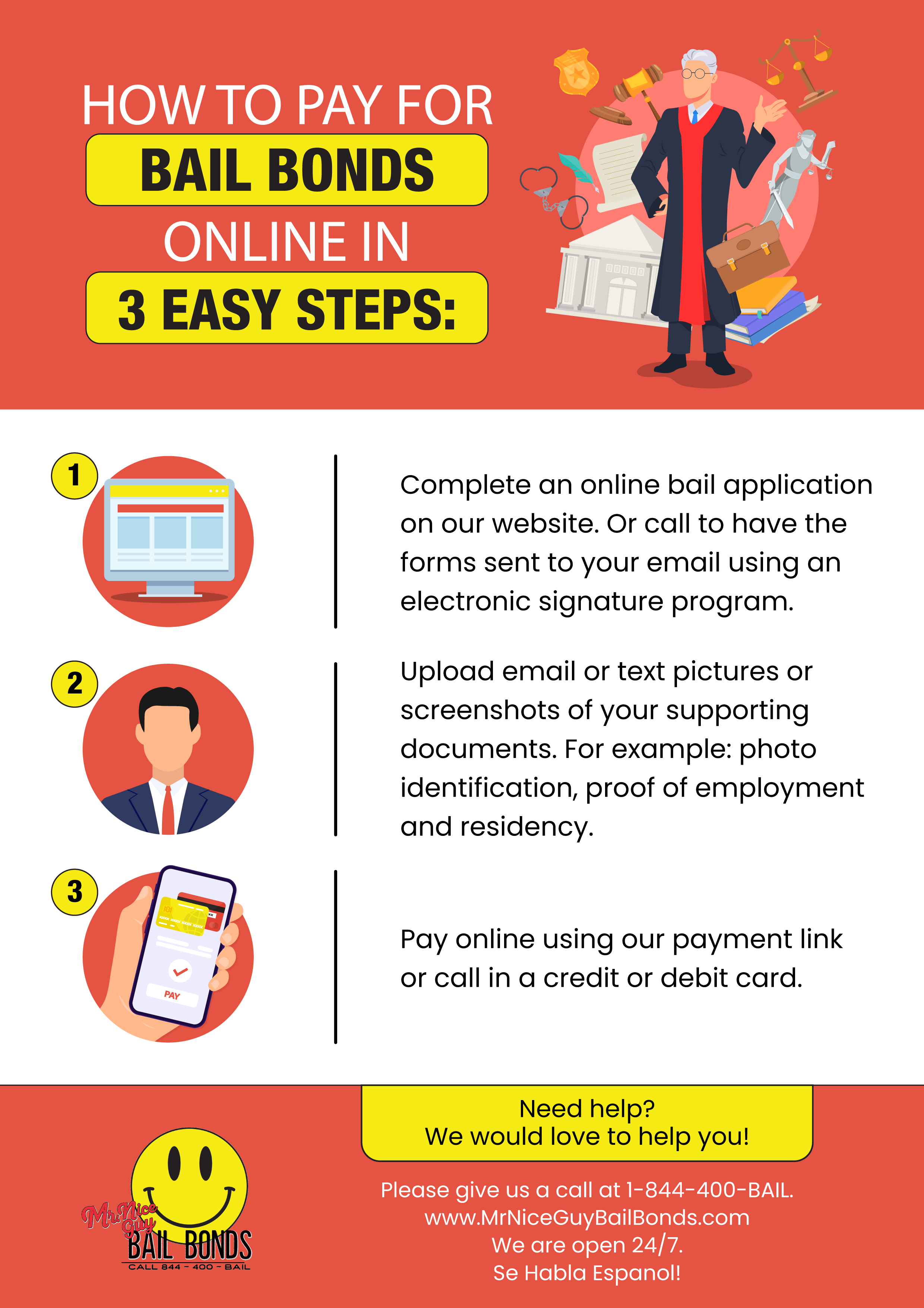Your Total Guide to Understanding Bail Bond Terms
Browsing the intricacies of bail bond terms and problems is a vital component of successfully taking care of legal difficulties. Different kinds of bail bonds and their associated costs can substantially influence the decision-making procedure.
What Is a Bail Bond?
A bail bond is a contractual contract in between an accused, a bond bondsman, and the court, ensuring that the defendant will appear for scheduled court proceedings for their release from protection. bail bonds service. This lawful tool serves to protect the passions of the court by offering an economic motivation for the accused to abide with judicial requirements
(bail bonds akron ohio)Commonly, when an accused is detained, they might be provided the option to post bond, which is a monetary quantity established by the court. If the accused can not pay for the bail, they can seek the assistance of a bondsman. The bail bondsman charges a non-refundable cost-- normally a percent of the overall bond amount-- in exchange for uploading the bond in behalf of the defendant.
Upon the defendant's launch, the bail bond continues to be essentially until the verdict of the court instance. Failing to appear in court might cause loss of the bail quantity, and the bondsman might go after the offender to recoup the expenses sustained. bail bonds service. Understanding the dynamics of bail bonds is vital for accuseds and their households as they browse the judicial procedure.
Secret Terms Described
Recognizing bail bonds entails familiarizing oneself with a number of essential terms that are indispensable to the process. One essential term is "bail," which refers to the quantity of cash needed to secure the release of a defendant from protection while waiting for test. "Bondsman," or "bondsman," is another essential term, signifying a specialist who provides the required funds for bond for a charge, usually a percentage of the total bail quantity.
" Collateral" is likewise significant; it stands for possessions promised by the accused or co-signer to guarantee the bond's payment. If the accused falls short to show up in court, the security may be surrendered. The term "indemnitor" refers to the individual who concurs to be accountable for the bond, commonly a relative or pal of the charged.

Sorts Of Bond Bonds
Various kinds of bail bonds serve different functions and accommodate specific scenarios in the legal system. The most usual type is the surety bond, where a bail bondsman assures the offender's look in court for a fee, typically 10% of the bond quantity. This kind is widely used since it allows individuals that can not pay for the complete bond to secure their release.
One more kind is the cash money bond, which calls for the complete bond total up to be paid in money to the court. This alternative is typically liked for reduced bond amounts, as it makes sure the offender's release without including a bail bondsman (bail bonds service). If the defendant appears in court as needed, the cash is reimbursed at the final thought of the case
Furthermore, there are property bonds, where property is utilized as security for the bail quantity. This can be a practical alternative for individuals who have residential or commercial property but do not have liquid funds.
Finally, federal bonds relate to government instances and are generally a lot more tough to obtain, frequently requiring the support of a specialized bondsman. Comprehending these variations is important for click site navigating the bond system efficiently.
Common Misconceptions
False impressions regarding bail bonds often lead to complication for offenders and their households. In reality, bond serves as a financial guarantee that the defendant will certainly show up at their arranged court hearings.
Another typical false impression is that all bond bonds are the same. There are a number of sorts of bail bonds, consisting of surety bonds, cash money bonds, and home bonds, each with distinct qualities and requirements. Understanding these differences is crucial for making notified choices.
In addition, lots of people believe that bail bond representatives are merely funding sharks. Actually, certified bail bond representatives run within a regulated structure, charging a premium for their solutions, which is commonly a portion of the complete bail amount.
Last but not least, some assume that only wealthy individuals can manage bail. Bail bond solutions are designed to aid those that may not have instant access to big amounts of money, enabling a more comprehensive sector of the population to secure their release while waiting for test. Clear understanding of these false impressions can significantly alleviate stress and anxiety throughout a difficult time.
Recognizing Fees and Prices
While navigating the bail bond process, it is necessary to recognize the fees and costs connected with securing a bond. Bond bonds generally call for a non-refundable costs, which is a portion of the total bond quantity established by the court. This premium usually ranges from 10% to 15%, depending on state laws and the bail bond firm's policies.
Along with the premium, there might be various other charges entailed. These can consist of administrative fees for refining the bond, security fees if assets are called for to secure the bond, and potential renewal charges if the bond needs to be extended. It is crucial to ask the bail bond agent for a thorough breakdown of all costs to stay clear of unanticipated costs.
(bail bonds dayton ohio)Understanding these economic elements in breakthrough can help people make informed choices and guarantee they are prepared for the general expenses linked with the bail bond procedure. Always review the contract completely and look for explanation on any unclear terms before proceeding.
Final Thought
